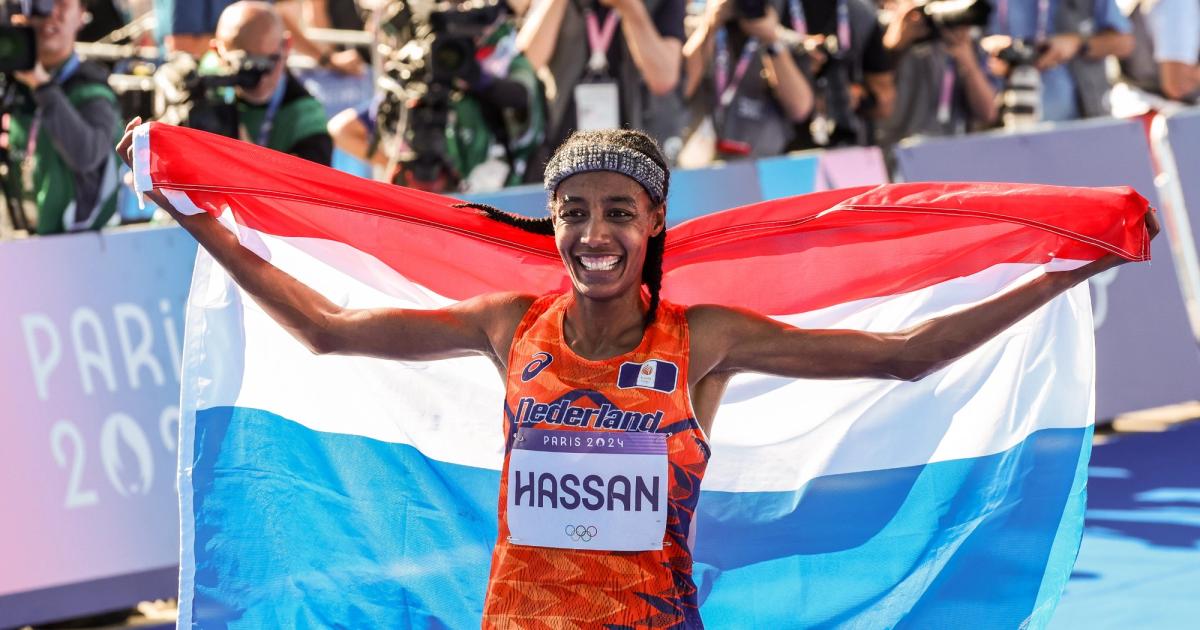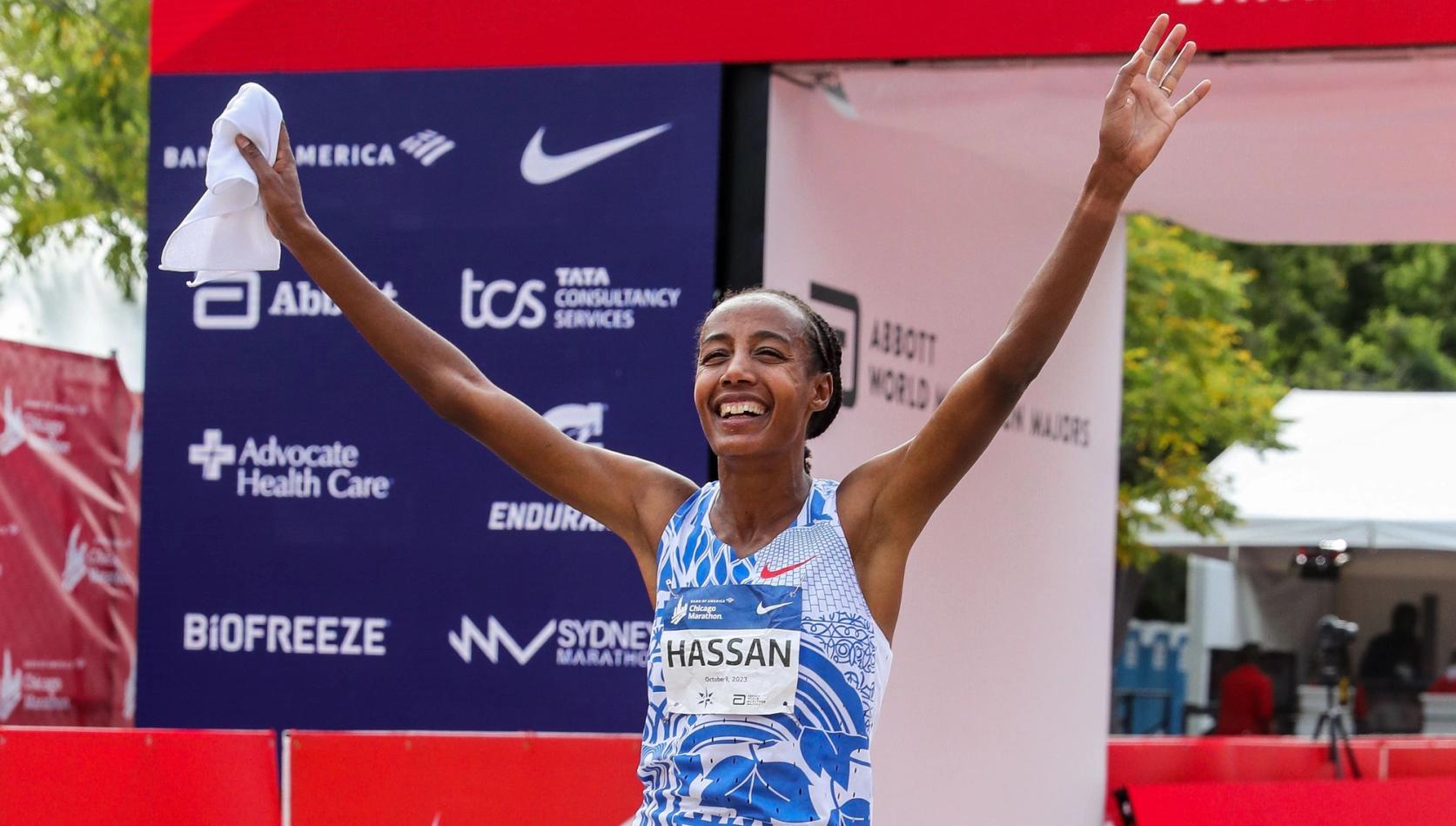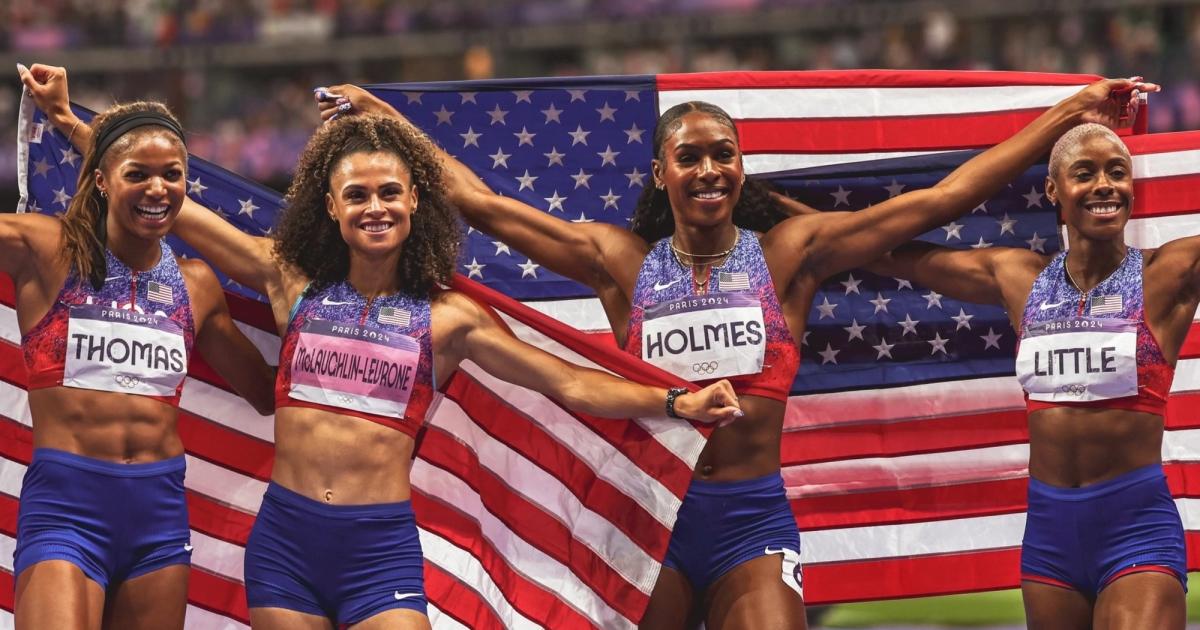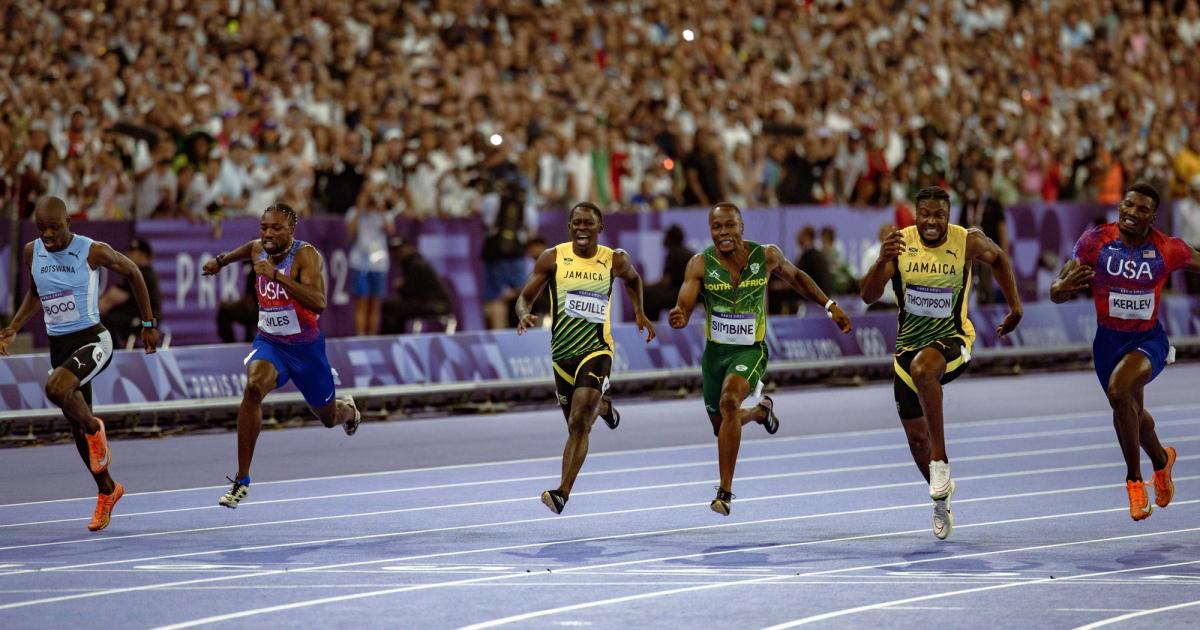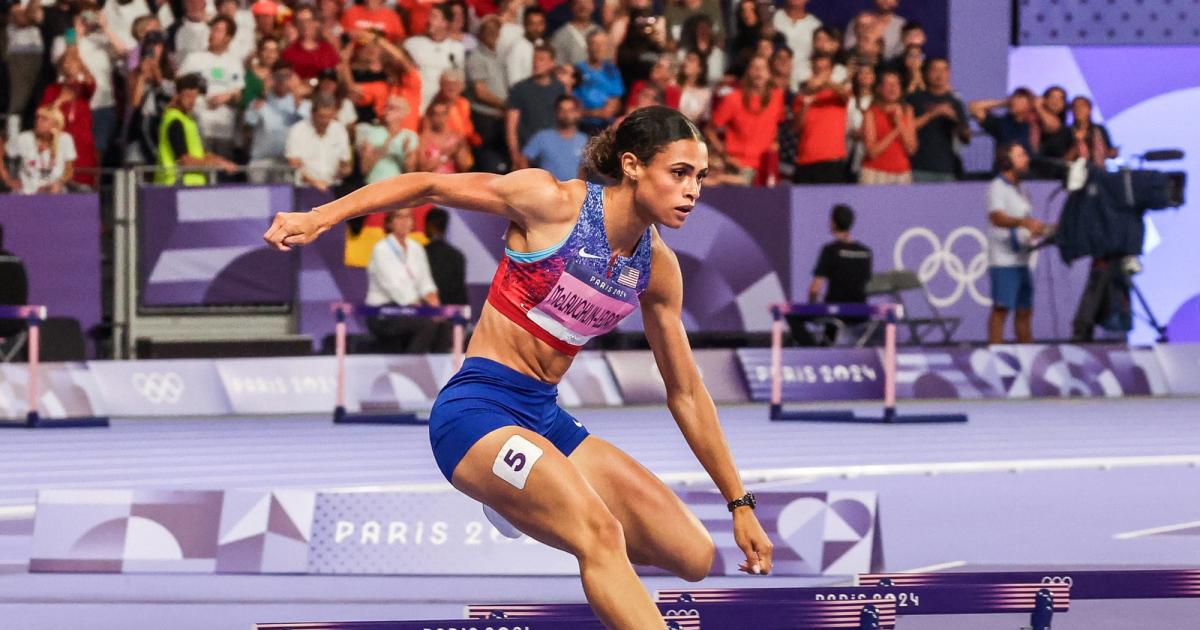By Preet Majithia
August 13, 2024
Sifan Hassan defies conventional logic or reasoning. It shouldn’t be possible to do many of the things she does. However time and again she sets herself impossible challenges and goes about achieving them. At this Olympics, she started by securing bronze medals in the 5000m and 10,000m in perhaps the most efficient way possible, staying at the back of the pack, running her own race and kicking through the field over the last lap to secure a bronze medal in each. Then she took on the ultimate racing challenge, the Olympic marathon, on one of the most challenging courses ever seen. When she was with the leaders with two kilometers left to go, there was a sense of inevitability, and of destiny, that awaited her in front of the appropriately golden dome of Les Invalides on the final morning of the Paris Olympics.
As she crossed the finish line to secure the third Olympic gold of her career, she became the first female athlete to win individual Olympic golds across 5000m, 10,000m and the marathon.
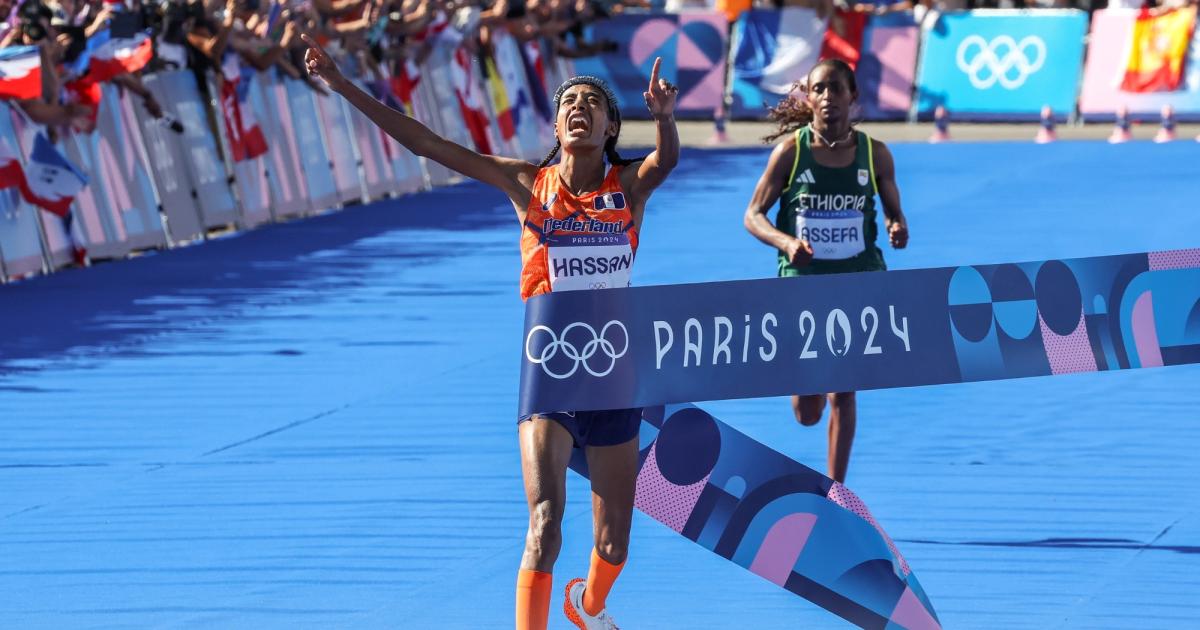
Photo by Kevin Morris / @Kevmofoto
At two successive games, she has medalled in not one, not two, but three different individual events, achieving this whilst battling a schedule that would make it near impossible for an athlete to give their best across all three events. The triple she attempted on this occasion has only been attempted (at least successfully) by one athlete in history: the Czech athlete Emil Zátopek at the 1952 Olympics, in which he won all three events.
Most athletes pick an event and train their entire careers to try and be the best in the world at that one event. In certain cases there are events that lend themselves to a 'double' – we have seen athletes be successful at 5000m and 10,000m or 1500m and 5000m. Some athletes will then move up in distance as their careers progress, such as the likes of Eliud Kipchoge or Kenenisa Bekele, who have gone on to have incredible marathon careers to match or exceed their accomplishments on the track.
One way to try and comprehend Hassan’s achievements is perhaps by looking at Gudaf Tsegay, a runner who came to Paris attempting the same triple of 1500m, 5000m, and 10,000m that Hassan pulled off at the Tokyo Olympics, and again at the World Championships in Budapest.
In 2024, Tsegay ran the third fastest time in history over both 1500m and 10,000m. And she ran her 14:00.21 5000m world record last September. She has World Championship gold over 10,000m from 2023, and 5000m gold along with 1500m silver from 2022. Her credentials and ability are not in doubt. However, when attempting the triple she failed to get a single medal, and didn't appear to come particularly close in any of them.
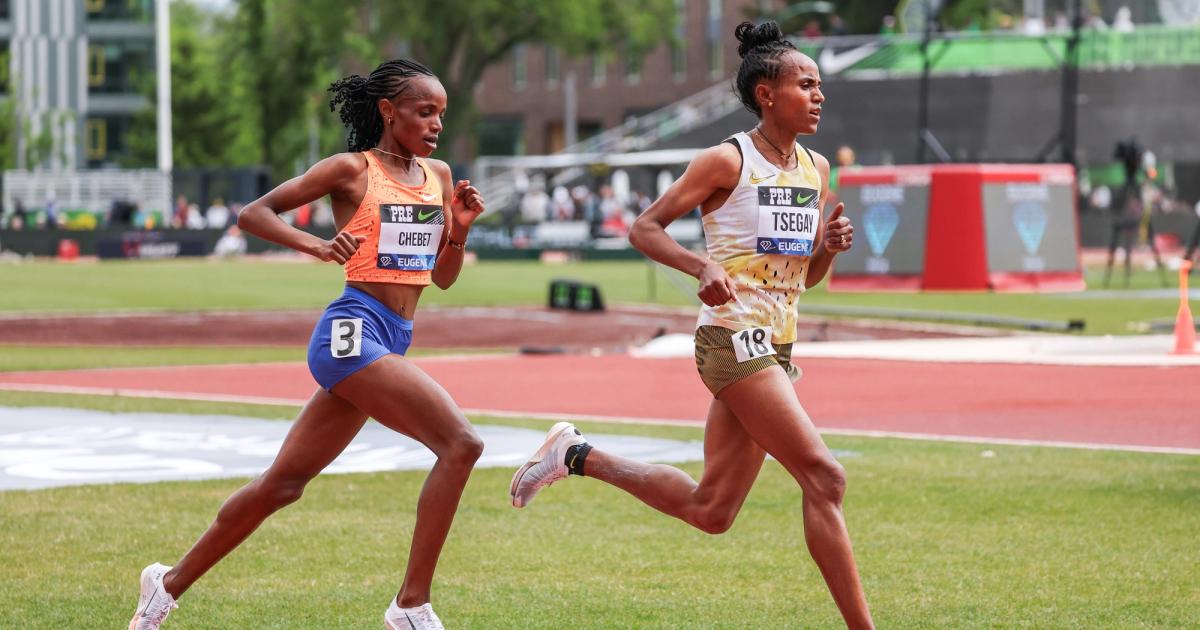
Photo by Kevin Morris / @Kevmofoto
Yet Sifan Hassan has attempted that same triple twice and has a return of five medals, (and was not far off going six for six, until she fell meters from the line in that epic 10,000m final in Budapest). She approaches these challenges with an infectious curiosity, and seems drawn to the challenge simply to find out what she might be able to achieve. Having put a huge amount of pressure on herself in Tokyo, has now learned to relax whilst continuing to attempt – and succeed in – challenges that others might consider completely bonkers.
The GOAT debate
All this begs the question, is Sifan Hassan the greatest women’s distance runner of all time – the GOAT? The GOAT debate is always one that generates endless discussion. So how should this be measured? Is the GOAT the person who can run the fastest times, or the athlete who can win the most medals? Perhaps the title of GOAT is restricted only to those who can do both? Discussions about the impact of improved shoe technology and the benefit of pacing lights have led to much debate about the value of fast times. Then again, at these Olympics the 10,000m world record holders did win the gold in both the men’s and women’s races, so perhaps there is some connection between the two.
There are the likes of Norwegian greats Grete Waitz and Ingrid Kristiansen who were setting multiple world records over a wide range of distances in the 1980s. Waitz won twelve marathon majors, lowered the marathon world record by over nine minutes, and also broke the 3000m world record, which was the longest track event for women in major championships at the time. Kristiansen became the first runner in history to simultaneously hold the world records for 5000m, 10,000m and the marathon, as well as the first athlete to win world titles on the track, on the road and over cross country. However they were competing in an era when the opportunities for women on the global stage were not as great, and this makes it much more challenging to compare those – still incredible! – achievements with those of athletes today.
The 10,000m was only included at the Olympics in 1988 and the 5000m replaced the 3000m in 1996. It is therefore only more straightforward to make a comparison after this point.
Faith Kipyegon is unquestionably the greatest there has ever been over 1500m, with three Olympic titles, backed up with three World Championship golds and two slivers, along with her world records over the mile and 1500m. Her medal streak began in 2015 and is ongoing. She has started her journey into other distances, breaking the 5000m world record prior to Tsegay last year, and winning World gold in 2023 and then Olympic silver in 2024 in her longer, secondary event.
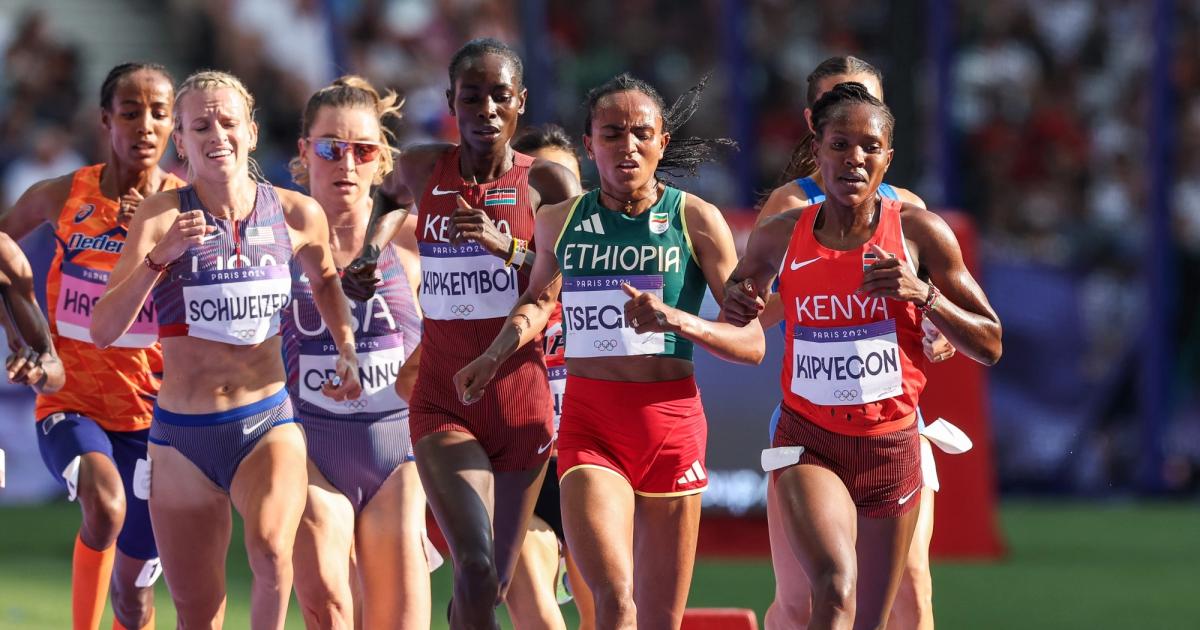
Photo by Kevin Morris / @Kevmofoto
Over 5000m, Meseret Defar medalled in all eight global championships from 2004 to 2013, including four golds, as well as breaking the world record twice. However her achievements never really extended to any other distances. She was unfortunate to be in the era of two other all-time great distance runners in Vivian Cheriuyot and Tirunesh Dibaba. Cheriuyot has five global golds across 5000m and 10,000m as well as five other medals, albeit her subsequent marathon success was more limited with only one major win.
Dibaba has an incredible eight global golds across the 5000m and 10,000m as well as four other medals, and held the world record for 5,000m from 2008 to 2020. Like Cheriuyot, she wasn’t quite as successful in transitioning to the marathon, with only one major win to her name. However, she remains the most consistent distance gold medalist on the track, and also boasted some serious longevity, winning global medals from 2003 to 2017, including across four Olympic Games. When talking about the track, she has a very strong case for being the distance GOAT.
There are others that maybe have potential to rise up on the list. Letesenbet Gidey, who has the records if not quite as many medals and huge potential in the marathon (and likely wins the GOAT award for the most perfect running form), along with Beatrice Chebet, whose star is very much in ascendance in 2024 with the the distance double gold in Paris and the 10,000m world record. And that is not to forget Tigst Assefa, who is the current marathon world record holder, with the unfathomable 2:11:53 2023 performance in Berlin on her resume, and is still young at the age of 27 (albeit she may lack the track accomplishments of her competitors for this particular GOAT discussion). There are also plenty of others that may not have the global medals, so perhaps don’t feature quite so highly on this list, such as Paula Radcliffe and her incredible 2:15:25 marathon world record from the pre-super-shoe era.
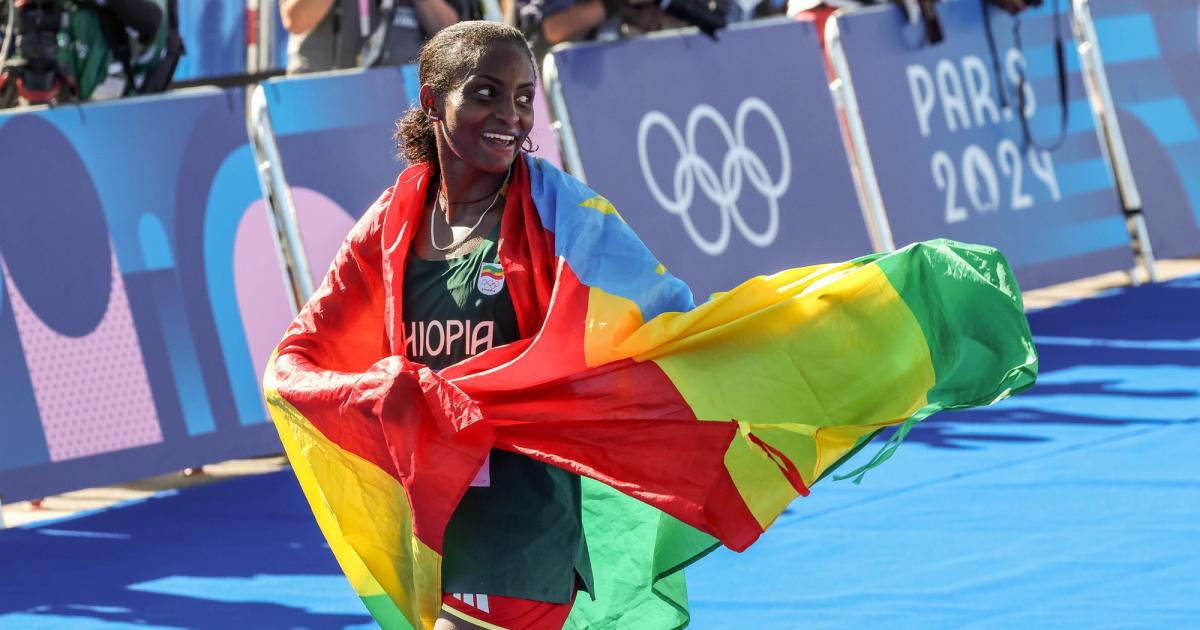
Photo by Kevin Morris / @Kevmofoto
Hassan’s achievements however comprise fourteen global medals, exceeding even Dibaba’s twelve, and achieving those across four distances: from 1500m to the marathon, including golds in each one. She seems able to flit between the marathon and the track almost at will, and her deadly track speed has been serving her well across her marathons. She is also the second fastest in history over the marathon, and her win in her first marathon in London in 2023 with her stop to stretch mid-race is perhaps one of the most astonishing distance running performances ever. Her path is not the well trodden one of many a distance runner, from shorter to longer races as her career draws on.
Some might argue that if she had focussed on perhaps the two main distances of 5,000m and 10,000m she could have collected many more than the five global golds she has won to date, and the desire to attempt the crazy triples may have impacted the ability to claim gold in some of the events over the past few years.
However her sheer ability to succeed across more than just two distances at any one time is ultimately what outlines her greatness and sends her very much to the head of the GOAT distance runner debate, for now at least. It remains unlikely that we will see an athlete take a similar approach any time soon (unless perhaps Kipyegon tries to give something similar a go) and it is this uniqueness which elevates her to the highest status in the pantheon of great women’s distance runners.

Preet Majithia
Preet is a London based accountant by day and now a track fan the rest of the time. Having never run a step in his life he’s in awe of all these amazing athletes and excited to help bring some attention to the sport.
